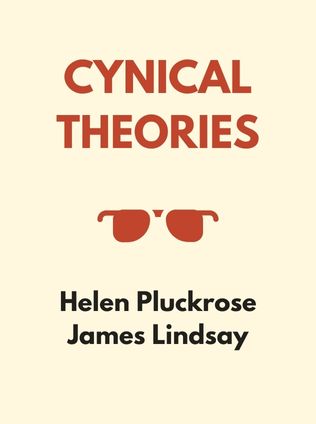
Cynical Theories
How Activist Scholarship Made Everything about Race, Gender, and Identity—and Why This Harms Everybody
By Helen Pluckrose and James Lindsay
Published 05/2020
About the Author
Helen Pluckrose and James Lindsay are scholars with diverse backgrounds but a common concern about the direction of modern social justice movements. Pluckrose is a cultural and political writer known for her critiques of contemporary social justice activism, especially as it relates to postmodernism. Lindsay, originally a mathematician, has become a public intellectual focused on critical theory, particularly how it affects academia and public discourse. Together, they co-authored "Cynical Theories", a book that aims to unpack and critique the evolution of postmodern thought and its influence on the Social Justice Movement. Their work is both a scholarly examination and a call to return to the liberal values of reason, debate, and scientific inquiry.
Main Idea
"Cynical Theories" offers a deep dive into the transformation of social justice from a movement rooted in liberal and material concerns to one dominated by postmodern ideas that, according to Pluckrose and Lindsay, have become increasingly radical and authoritarian. The authors argue that the contemporary Social Justice Movement, influenced heavily by postmodernism, has abandoned the principles of free speech and rational debate in favor of a more dogmatic approach that polices thought and language. This shift, they contend, is not only detrimental to the pursuit of truth but also to the broader goal of social justice itself. Through a detailed analysis of the evolution of these ideas, the book advocates for a return to liberalism, which the authors believe is the best framework for achieving true equality and justice.
Table of Contents
- Introduction
- How Social Justice Changed
- The Social Justice Movement Rejects Science
- The Social Justice Movement Rejects Freedom of Speech
- Why Society Should Return to Liberalism
How Social Justice Changed
Pluckrose and Lindsay begin by tracing the historical roots of social justice, highlighting how it has evolved over the past century. Initially, social justice movements were primarily focused on addressing tangible, material inequalities. These movements, grounded in liberalism and Marxism, sought concrete political and economic reforms, such as women's suffrage, civil rights, and labor rights. Liberalism, with its emphasis on reason, logic, and empirical evidence, championed the idea that society could be improved through rational debate and legal reforms. Marxism, on the other hand, focused on economic structures, arguing that class struggle was the key to understanding and overcoming social inequalities.
"Liberalism and Marxism once focused on concrete political and economic goals, aiming for universal rights and equality." - Helen Pluckrose and James Lindsay
However, the authors argue that starting in the mid-20th century, a new intellectual movement known as postmodernism began to challenge these traditional approaches. Postmodernism, which emerged in the 1950s and 1960s, was characterized by its skepticism of grand narratives and its emphasis on the role of power in shaping knowledge and truth. Postmodern thinkers like Michel Foucault and Jacques Derrida questioned the very foundations of knowledge, arguing that what we consider to be "truth" is often a construct created by those in power to serve their interests.
This postmodern critique laid the groundwork for a significant shift in the social justice landscape. According to Pluckrose and Lindsay, the focus of social justice activism began to move away from material concerns and towards cultural and linguistic issues. This shift was marked by the rise of critical theory, which applies postmodern ideas to analyze and critique various aspects of culture, including language, literature, and identity. Critical theorists argue that all aspects of society are shaped by power dynamics and that these dynamics are embedded in cultural narratives and practices.
Sign up for FREE and get access to 1,400+ books summaries.
You May Also Like
Freakonomics
A Rogue Economist Explores the Hidden Side of Everything
By Steven D. Levitt and Stephen J. DubnerI Am Malala
The Story of the Girl Who Stood Up for Education and Was Shot by the Taliban
By Malala Yousafzai



















